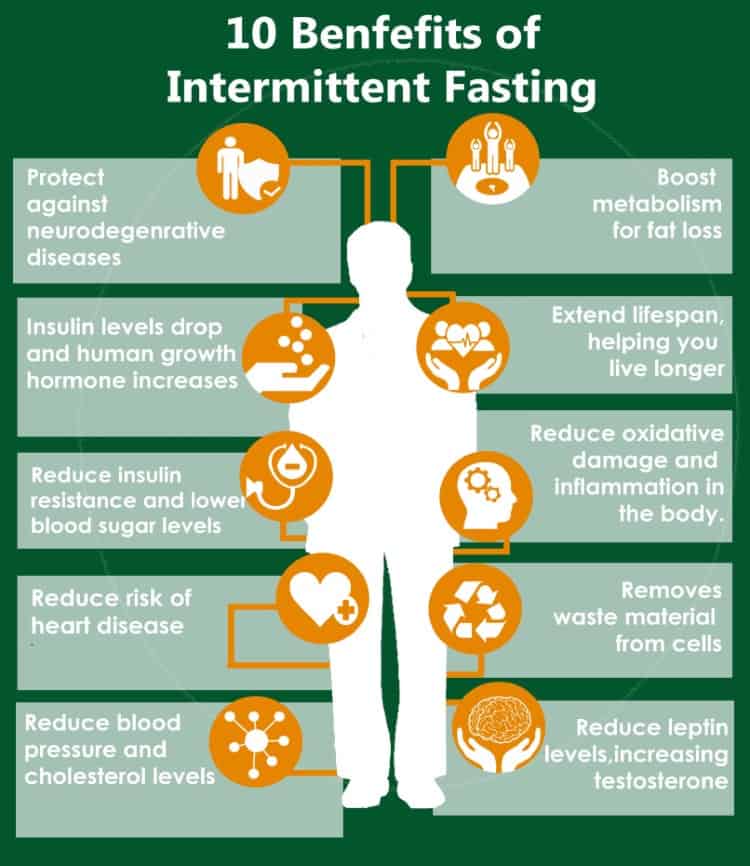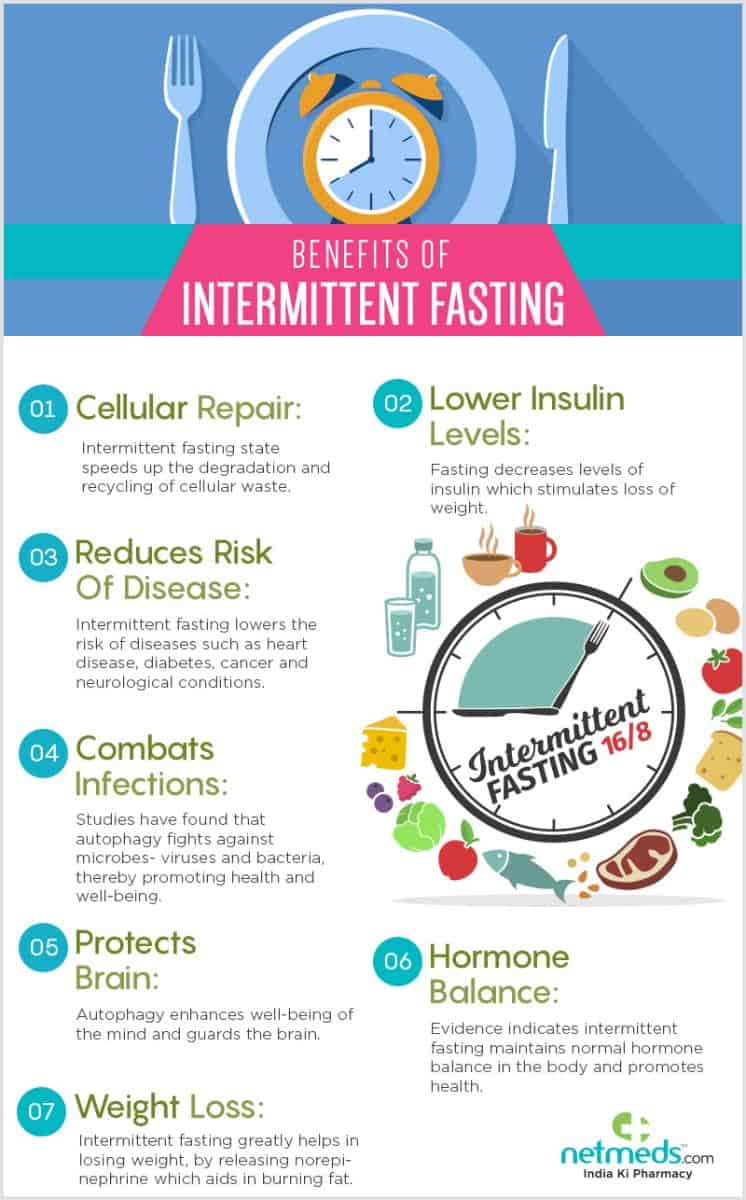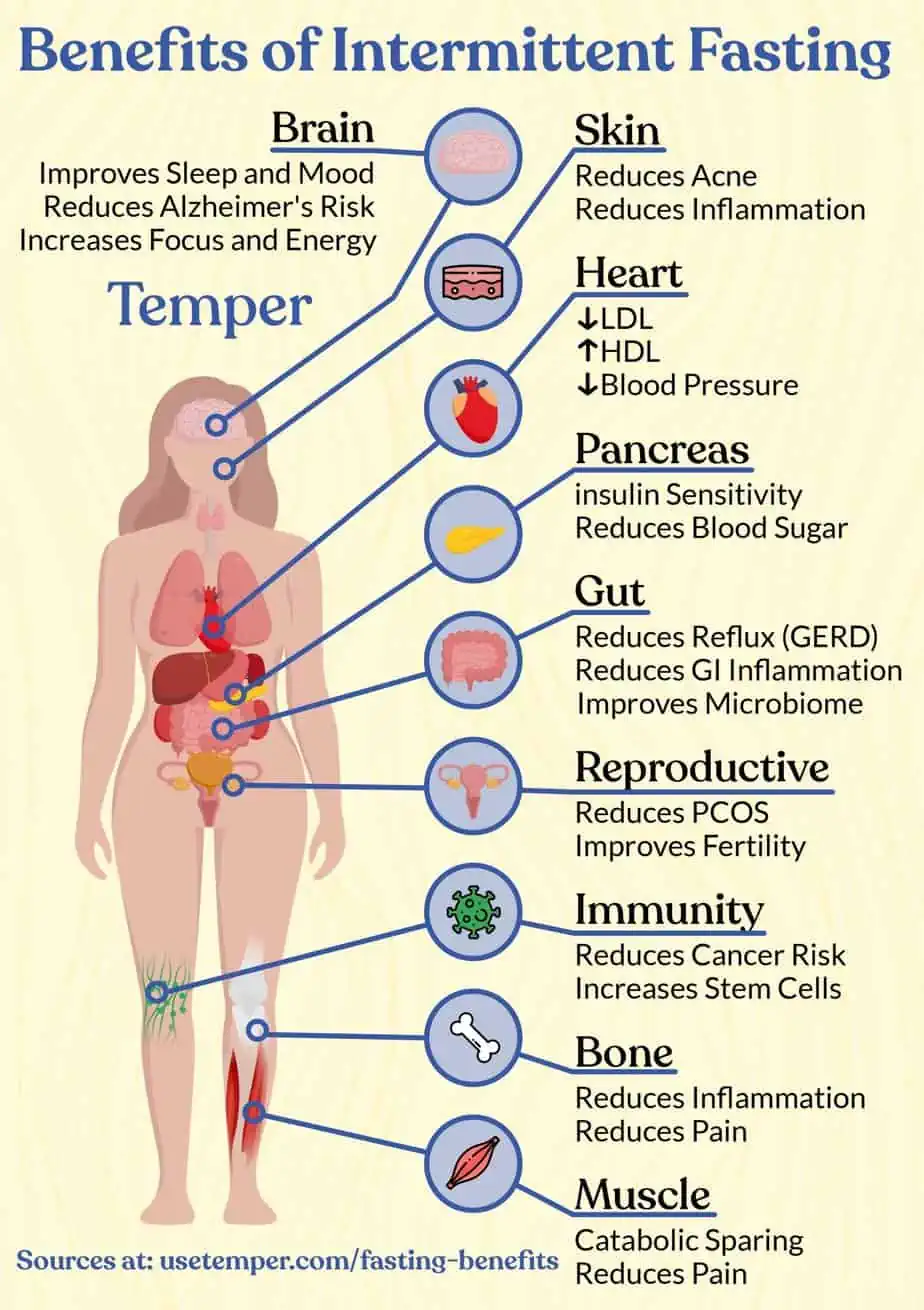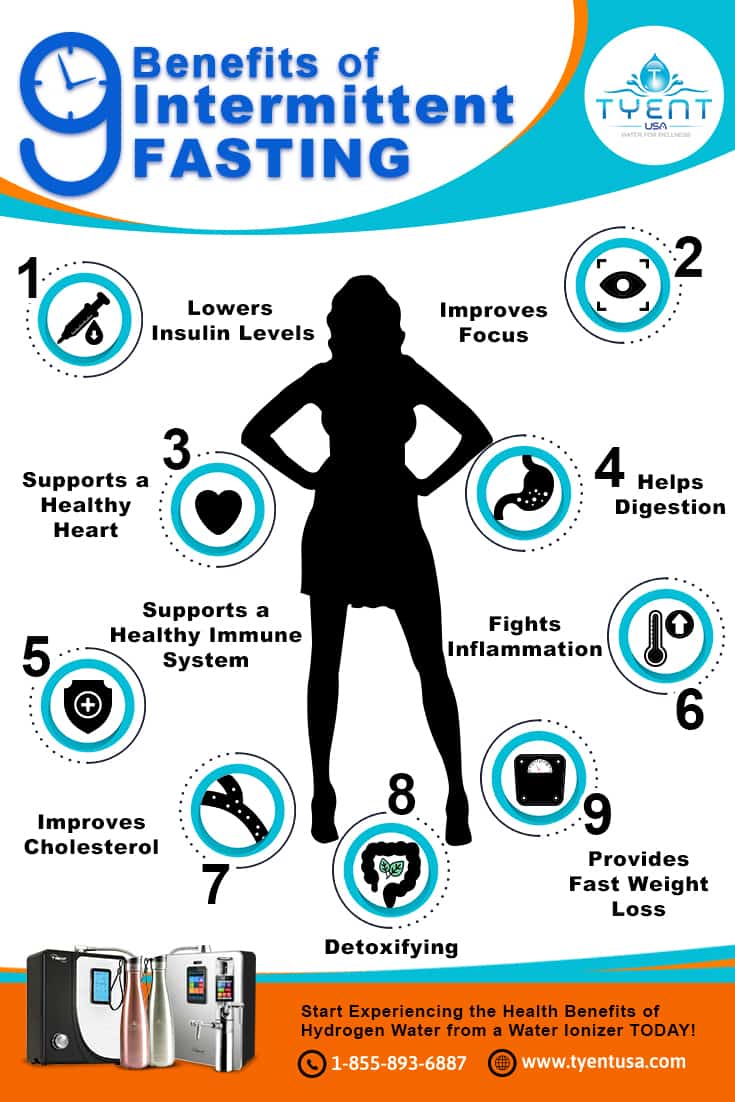Have you ever heard of intermittent fasting? It’s a way of eating where you alternate between periods of eating and periods of fasting. Did you know that intermittent fasting can actually have some amazing health benefits? It can help you lose weight, improve your heart health, and even boost your brain function! In this article, we’ll explore the benefits of intermittent fasting and how it can be a great way to take care of your health. So, let’s learn more about this exciting way of eating!
Weight Loss
intermittent fasting can help with weight loss by reducing calorie intake. When you fast, you’re not eating for a certain period of time, which means you’re consuming fewer calories overall. This can be especially helpful if you tend to eat a lot of high-calorie foods. Fasting also boosts metabolism, which is the rate at which your body burns calories. When your metabolism is higher, you burn more calories, even when you’re not actively exercising. Lastly, intermittent fasting preserves lean muscle mass. This is important because muscle burns more calories than fat, so the more muscle you have, the more calories you’ll burn throughout the day.
Improves Insulin Sensitivity
Intermittent fasting can enhance insulin function, which is important for controlling blood sugar levels. Insulin is a hormone that helps regulate blood sugar. When you eat, your body releases insulin to help bring your blood sugar levels back to normal. However, if you’re constantly eating, your body may become less sensitive to insulin, which can lead to high blood sugar levels and an increased risk of type 2 diabetes. Intermittent fasting helps improve insulin sensitivity, which means your body can use insulin more effectively and maintain stable blood sugar levels.

Promotes Autophagy
Autophagy is a natural process in our bodies that cleanses and repairs cells. It’s like a recycling system for our cells. When we fast, our bodies go through a process called autophagy, where our cells break down old, damaged proteins and organelles and recycle them into new, healthy ones. This process is important for maintaining the overall health of our cells and may help prevent neurodegenerative diseases like Alzheimer’s and Parkinson’s. In addition, autophagy supports anti-aging by keeping our cells in good condition.
Reduces Inflammation
Inflammation is a natural response by our bodies to fight off infection or injury. However, chronic inflammation can lead to various health problems, including autoimmune diseases. Intermittent fasting can help reduce inflammation by decreasing oxidative stress. Oxidative stress occurs when there is an imbalance between antioxidants and free radicals in our bodies. Fasting can also combat chronic inflammation by activating certain pathways that help regulate the immune system. By reducing inflammation, intermittent fasting may alleviate the symptoms of autoimmune diseases and improve overall health.

Enhances Heart Health
Intermittent fasting has been shown to have several benefits for heart health. It can lower blood pressure, which is important because high blood pressure can strain your heart and increase the risk of heart disease. Fasting also improves blood lipid profile, which refers to the levels of cholesterol and triglycerides in your blood. Having healthy blood lipid levels is important for heart health. Additionally, intermittent fasting reduces markers of heart disease risk, such as inflammation and insulin resistance. By enhancing heart health, intermittent fasting can help reduce the risk of cardiovascular diseases.
Boosts Brain Function
Intermittent fasting can have positive effects on brain function. It increases the production of a protein called brain-derived neurotrophic factor (BDNF). BDNF helps to support the growth and survival of neurons in the brain, which can improve cognitive function and memory. Intermittent fasting may also reduce the risk of neurodegenerative diseases like Alzheimer’s and Parkinson’s. Research has shown that fasting can increase the production of new neurons and protect against the accumulation of toxic proteins in the brain, which are associated with these diseases.

Improves Gut Health
The gut microbiome plays a crucial role in our overall health. Intermittent fasting promotes gut microbiome diversity, which means there are more different types of bacteria living in our gut. This diversity is important because different bacteria have different functions and can help with various aspects of our health. Fasting also regulates bowel movements, which can be helpful for those who struggle with irregularity. Additionally, intermittent fasting may help treat digestive disorders such as irritable bowel syndrome (IBS) and inflammatory bowel disease (IBD) by giving the gut a chance to rest and heal.
Increases Longevity
Many studies have suggested that intermittent fasting can increase longevity. It activates specific genes associated with longevity, such as sirtuins, which are involved in various cellular processes that promote health and longevity. Fasting also promotes cellular repair processes, allowing our cells to rejuvenate and function optimally. By activating these longevity genes and supporting cellular repair, intermittent fasting may extend lifespan and improve overall health and vitality.

Enhances Energy Levels
Intermittent fasting can enhance energy levels by promoting cellular energy production. When we fast, our bodies switch from using glucose as the main source of fuel to using stored fat. This process, called ketosis, allows our bodies to produce energy more efficiently, which can lead to increased energy levels. Fasting also increases mitochondrial function. Mitochondria are the powerhouses of our cells and are responsible for producing energy. By improving mitochondrial function, intermittent fasting can enhance overall energy levels and reduce fatigue.
Improves Sleep Quality
Intermittent fasting can have positive effects on sleep quality. It helps regulate the circadian rhythm, which is our internal body clock that controls our sleep-wake cycle. By following a regular fasting schedule, you can help align your body’s natural rhythm with your sleep schedule. Fasting also enhances melatonin production, which is a hormone that helps regulate sleep. When melatonin levels are balanced, it can improve the quality and duration of sleep. Intermittent fasting may alleviate sleep disorders like insomnia and help you get a restful night’s sleep.
In conclusion, intermittent fasting has numerous health benefits. It can aid in weight loss, improve insulin sensitivity, promote autophagy, reduce inflammation, enhance heart health, boost brain function, improve gut health, increase longevity, enhance energy levels, and improve sleep quality. However, it’s important to approach intermittent fasting with caution and consult with a healthcare professional before starting any new dietary regimen, especially for children.

